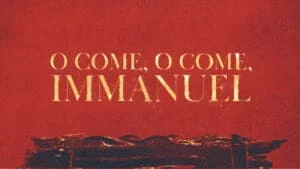Mount Olympus is the highest mountain in Greece and was thought to be the home of gods. The twelve Olympians, with Zeus at their head, made their dwelling atop this great mountain…high above the average man, often above the clouds, far away from the grinding lives of mortals.
In this, the Greeks are no different from other ancient religions or the rest of us, for that matter. If we’re honest, we’d all probably agree that there should be some separation between us mortals and our god(s). The problem with Greek mythology was that the gods were too much like us – they shared our same moral failings.
And so, we place them on Olympus…or heaven…or Elysium. Just so long as there is the necessary distance of separation. But Christmas changes things.
Hundreds of years before the birth of Christ, the Hebrew prophet, Isaiah, foretold: “Therefore, the Lord himself will give you a sign: See, the virgin will conceive, have a son, and name him Immanuel.” (Isaiah 7:14)
Immanuel. The name means “God with us.” With…as in close, nearby, alongside. Look up that little preposition in the dictionary and you find it means: a companion of, next to, in charge of keeping, in support of, in the same group, in the same direction.
The child’s name was “God, a companion of us;” “God next to us;” “God in support of us;” “God nearby us.”
In the opening salvo of the Gospel of John we read these words: “The Word became flesh and dwelt among us. We observed his glory, the glory as the one and only Son from the Father, full of grace and truth.” (John 1:14)
That is the message of Christmas. We humans continue to separate ourselves from God, but He continually pursues us. He finds us. And He tells us, “I am the God that is with you.”
Join us Sunday for our new sermon series “O Come, O, Come, Immanuel.” This week’s message: “God with Us…in the Far-away Places.”





 Loving Others
Loving Others